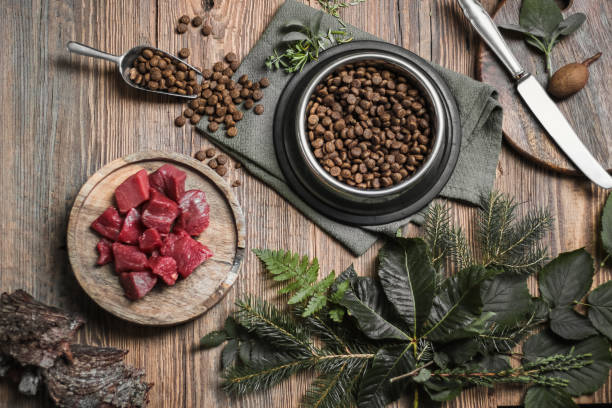What Not to Feed Your Dog: Essential Guidelines for Pet Health:
While many foods are suitable for dogs, there are several items that can be harmful or even toxic to their health. Understanding what not to feed your dog is crucial for safeguarding their well-being and avoiding potential health risks. In this guide, we’ll outline the foods that should never find their way into your dog’s bowl.
1. Chocolate: The Sweet Treat That’s Toxic:
Chocolate, a beloved indulgence for humans, poses a significant threat to dogs. This delectable treat contains theobromine and caffeine, substances that are toxic to canines. Ingestion of chocolate can lead to symptoms such as vomiting, diarrhea, rapid breathing, increased heart rate, seizures, and even death. To protect your dog’s health, keep chocolate and cocoa products safely out of reach.
2. Grapes and Raisins: A Hidden Danger:
While grapes and raisins may seem like harmless snacks, they can have serious consequences for dogs. Even in small amounts, these fruits can cause kidney failure in dogs, leading to symptoms such as vomiting, diarrhea, lethargy, and decreased appetite. It’s essential to be vigilant and ensure that grapes and raisins are kept away from your dog at all times.
3. Onions and Garlic: Culinary Hazards:
Onions and garlic, commonly used as flavor enhancers in many dishes, contain compounds that are toxic to dogs. Ingestion of these ingredients can damage a dog’s red blood cells, leading to anemia. Symptoms may include weakness, vomiting, diarrhea, and breathlessness. To protect your dog’s health, avoid feeding them any foods containing onions or garlic, whether raw, cooked, or powdered.
4. Xylitol: A Hidden Threat in Sugar-Free Products:
Xylitol, a sugar substitute commonly found in sugar-free gum, candy, and some peanut butter brands, can have devastating effects on dogs. Ingestion of xylitol can cause a rapid release of insulin, leading to hypoglycemia (low blood sugar), seizures, and liver failure. Be sure to check the ingredients of any products before sharing them with your dog, and avoid those containing xylitol at all costs.
5. Avocado: A Potential Pitfall:
Avocado, a popular fruit prized for its creamy texture and rich flavor, contains a substance called persin, which is toxic to dogs in large quantities. Ingestion of avocado can cause vomiting and diarrhea in dogs. Additionally, the avocado pit poses a choking hazard and may cause gastrointestinal blockages if ingested. Keep avocados out of your dog’s reach to prevent any mishaps.
6. Alcohol: Not for Canine Consumption:
Alcoholic beverages and foods containing alcohol should never be given to dogs. Alcohol can cause alcohol poisoning in dogs, leading to symptoms such as vomiting, diarrhea, difficulty breathing, tremors, and coma. Even small amounts of alcohol can have serious consequences for your dog’s health, so it’s best to err on the side of caution and keep alcoholic substances away from your furry friend.
7. Macadamia Nuts: A Nutty No-No:
Macadamia nuts, while delicious for humans, can be harmful to dogs. Ingestion of macadamia nuts can cause weakness, tremors, vomiting, and hyperthermia (elevated body temperature) in dogs. Symptoms usually appear within 12 hours of ingestion and can last up to 48 hours. To prevent any adverse reactions, ensure that macadamia nuts are kept well out of your dog’s reach.
8. Bones: A Choking Hazard:
While bones may seem like a natural and enjoyable treat for dogs, they can pose significant risks to their health. Cooked bones, especially those from poultry or fish, can splinter and cause choking, gastrointestinal blockages, or perforations in a dog’s digestive tract. It’s safer to provide your dog with specially designed chew toys or raw bones under supervision, rather than risking the potential dangers of cooked bones.
Protecting Your Pet’s Health:
In conclusion, knowing what not to feed your dog is essential for ensuring their health and well-being. By being mindful of potential hazards and avoiding foods that can be harmful or toxic to dogs, you can protect your canine companion from unnecessary risks and help them live a long, happy, and healthy life. If you suspect your dog has ingested something toxic, contact your veterinarian immediately for guidance and treatment. With proper care and attention, you can keep your dog safe and thriving for years to come.
